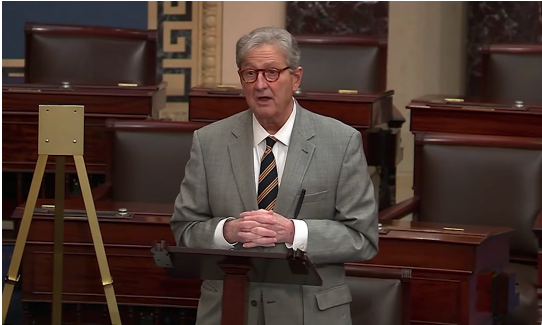WASHINGTON – The U.S. Senate has passed a joint resolution introduced by Senator John Kennedy (R-La.) to overturn a controversial Biden administration rule that significantly alters the bank merger approval process. The resolution, passed under the Congressional Review Act, aims to restore the pre-2025 standards for evaluating bank mergers, particularly benefiting community and regional banks across the country.
The Office of the Comptroller of the Currency’s (OCC) updated rule, which took effect on January 1, 2025, revised longstanding procedures under the Bank Merger Act of 1960. Critics, including Sen. Kennedy and several industry leaders, say the new rule added unnecessary bureaucracy that delays or blocks otherwise healthy mergers and reduces access to credit for consumers.
“They took this very simple and effective rule and procedure, and they turned it on its head,” said Sen. Kennedy during floor remarks. “This is about ensuring community banks can continue to serve hardworking Americans without drowning in red tape.”
Under the former rule, the OCC assumed no opposition to a merger application if no action was taken within 15 days. The Biden-era changes shifted the burden of proof onto banks—requiring applicants to demonstrate that a merger would not harm competition or consumers, a reversal that Kennedy and cosponsors argued would stifle innovation and access.
Background and Support:
Sen. Kennedy introduced the resolution in February 2025, with bipartisan support from Sens. Bill Hagerty (R-Tenn.), Thom Tillis (R-N.C.), Tim Scott (R-S.C.), Steve Daines (R-Mont.), and Bernie Moreno (R-Ohio). The American Bankers Association (ABA) endorsed the resolution, citing a need for clarity and consistency in regulatory standards.
“This regulation added more red tape and disproportionately burdened small and mid-size banks,” said Sen. Daines.
“Community and regional banks deserve a regulatory framework that supports growth, innovation, and expanded access to credit,” added Rep. Andy Barr (R-Ky.), who introduced the companion resolution in the House.
The resolution now advances to the U.S. House of Representatives for consideration.

